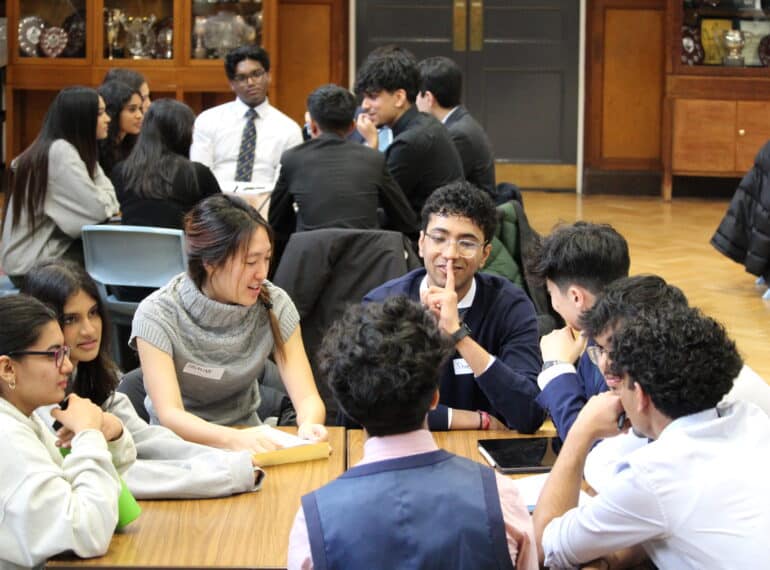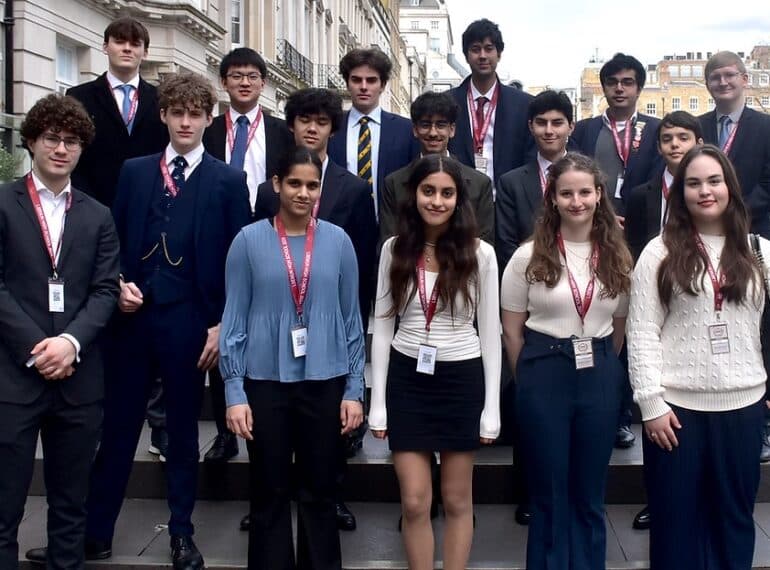
Two QE sixth-formers won Top Delegate awards at a Model United Nations conference held at the London School of Economics.
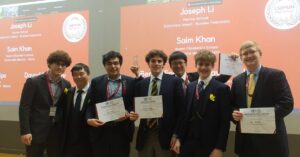 Saim Khan and Chanakya Seetharam were part of a nine-strong group from QE’s Year 12 who took part in the three-day debating event, which simulated the activities of the UN.
Saim Khan and Chanakya Seetharam were part of a nine-strong group from QE’s Year 12 who took part in the three-day debating event, which simulated the activities of the UN.
Crispin Bonham-Carter, Assistant Head (Pupil Involvement), said: “MUN events not only develop students’ skills in debating but also give them a real understanding of international issues and of how the UN works. The LSE-hosted MUN conference is among the most prestigious, attracting leading schools such as Harrow, Eton and City of London.
“Our party threw themselves into the three days wholeheartedly, playing a full part in the debates and in the social events that were arranged. My congratulations go to Saim and Chanakya for their awards.”
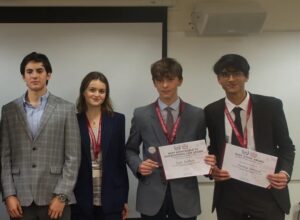 The QE delegates were split among the various committees, including the Security Council. They debated a wide range of topics, including both current conflicts and those of the past, such as the 1956-1957 Suez Crisis.
The QE delegates were split among the various committees, including the Security Council. They debated a wide range of topics, including both current conflicts and those of the past, such as the 1956-1957 Suez Crisis.
Saim, a Senior Vice-Captain at QE, later reflected on his experience: “MUN is always an amazing opportunity – as a delegate you become solely a vessel for the opinions of your country, no matter how much they may be at odds with your own personal beliefs. It teaches you the ever-valuable virtues of negotiation and compromise. With other delegates always on the prowl to try and score a hit for themselves at the expense of you and your country, the conference is a true test of wits and cunning!
“Our successes over the weekend included finding a workable, holistic and balanced solution to end decades of ethnic tension and conflict in the Nagorno-Karabakh region in the UNSC, the triumphing of the Egyptian cabinet in the Suez canal crisis (putting an end to Britain’s imperialistic goals), and the liberation of Argentina from its neofascist military regime.”
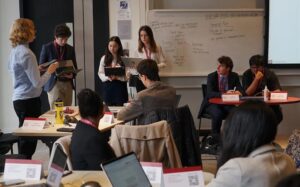 Saim relished his own role representing Malta (“not necessarily the world’s most geopolitically dominant nation”) at MUN. “Whilst I had to work much harder to establish my initial credibility and convince other delegates that the Maltese were even worth listening to, by the end of the three days I can confidently say that Malta had become the leader of the free world.”
Saim relished his own role representing Malta (“not necessarily the world’s most geopolitically dominant nation”) at MUN. “Whilst I had to work much harder to establish my initial credibility and convince other delegates that the Maltese were even worth listening to, by the end of the three days I can confidently say that Malta had become the leader of the free world.”
Chanakya won his award for his work as a ICC Justice at the International Criminal Court. “I loved being able to engage with real issues of international law with people who shared my interest,” he said.
Koustuv Bhomwick found himself at the centre of the Suez Crisis debate, representing the then-Egyptian President Gamal Nasser – “an exhilarating experience!” he said. “
In addition to the debates, the delegates enjoyed a ball hosted by the LSE’s own MUN organisation, as well as campus tours and outreach events hosted by LSE staff.
Kanusan Naveedran said: “We were provided with insightful knowledge into LSE student life.” Zaki Mustafa added that the ball was “an excellent social opportunity”.
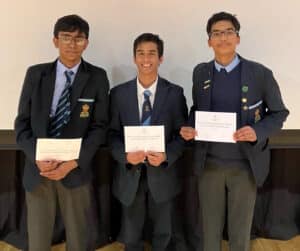 While the group were disappointed to miss out on the award for best medium-sized delegation (which went to Eton), they were, said Uday Dash, “extremely grateful to the conference for providing us with a platform to discuss real socio-economic and political matters that drastically affect our world today”.
While the group were disappointed to miss out on the award for best medium-sized delegation (which went to Eton), they were, said Uday Dash, “extremely grateful to the conference for providing us with a platform to discuss real socio-economic and political matters that drastically affect our world today”.
QE also recently enjoyed team success in South Hampstead High School’s Spring Debate Competition. With delegates drawn from Year 8 to 12, three of the four QE teams won three out of four debates, while one senior team – again comprising Year12’s Uday Dash, as well as Year 10’s Rithwik Gururaj and Orko Ghosh – swept all before them to win overall.

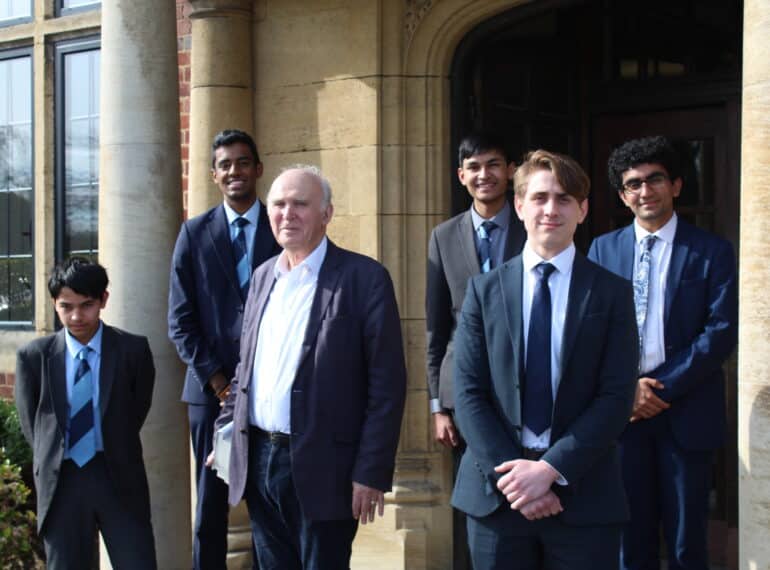
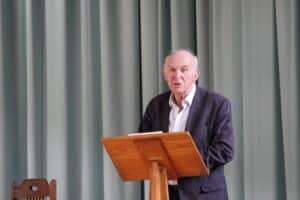 His afternoon visit to QE was led by the society’s Rishabh Bhatt, of Year 12. Before taking questions from an audience drawn from all year groups in the Main School Hall, he gave some brief advice to any aspiring politicians. They should understand the importance of:
His afternoon visit to QE was led by the society’s Rishabh Bhatt, of Year 12. Before taking questions from an audience drawn from all year groups in the Main School Hall, he gave some brief advice to any aspiring politicians. They should understand the importance of: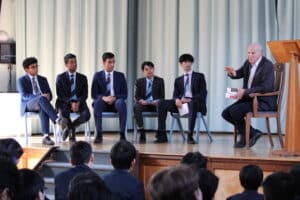 Assessing how the General Election may go overall, he said that a Labour government seems the most likely at present, but that it was entirely possible that it would not have the big majority that some, taking their cue from opinion polls, are assuming.
Assessing how the General Election may go overall, he said that a Labour government seems the most likely at present, but that it was entirely possible that it would not have the big majority that some, taking their cue from opinion polls, are assuming.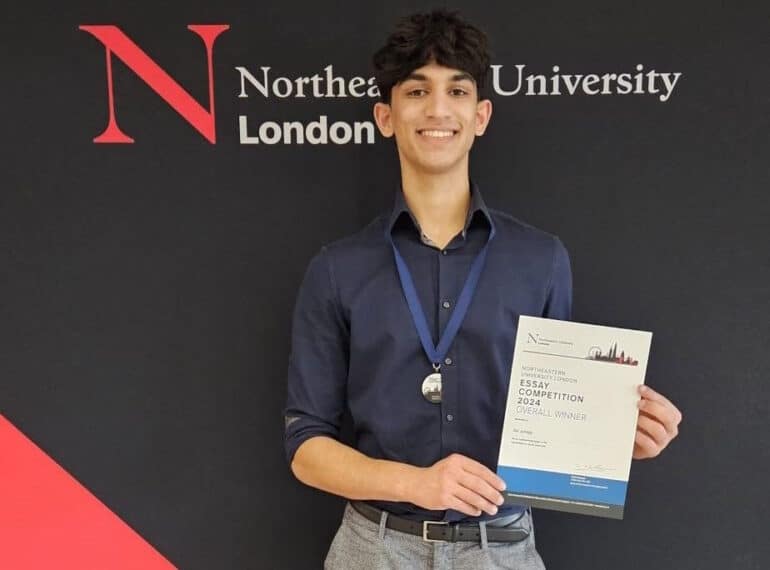
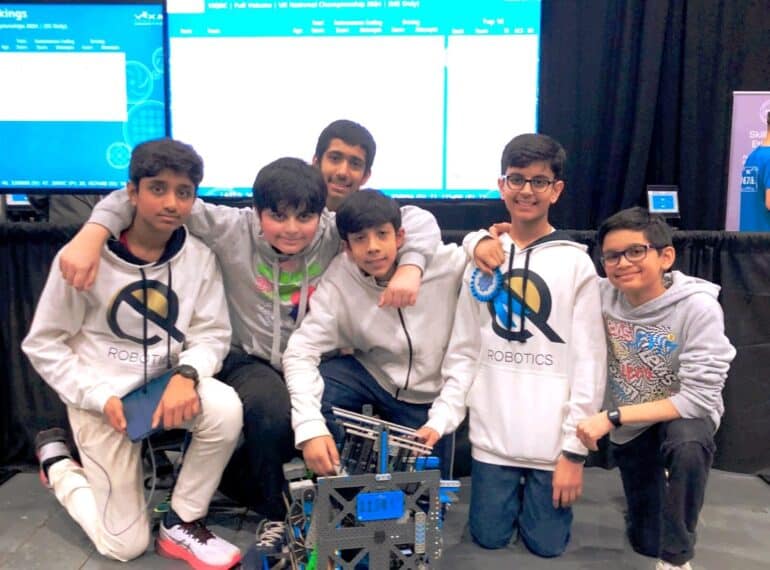
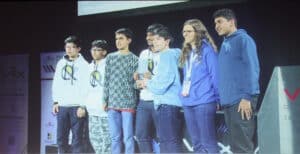 Teams Gearsquad, Constellation and CircuitBreakers will be heading for the States at the end of this month, having maintained strong performances at the national championships in Telford.
Teams Gearsquad, Constellation and CircuitBreakers will be heading for the States at the end of this month, having maintained strong performances at the national championships in Telford.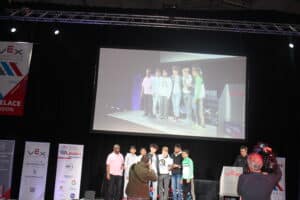 The three 2024 qualifiers sealed their qualification at the recent UK national championships, in which all 11 QE robotics teams took part.
The three 2024 qualifiers sealed their qualification at the recent UK national championships, in which all 11 QE robotics teams took part. “QE performed well, ranking 25th and 26th in their divisions of 60-plus teams and both successfully being selected at Alliance Selection, being unfortunate to be knocked out at the round of 16, “said Mr Noonan. “Students loved the experience, despite the cold temperatures, particularly commenting on the beauty of Calgary.”
“QE performed well, ranking 25th and 26th in their divisions of 60-plus teams and both successfully being selected at Alliance Selection, being unfortunate to be knocked out at the round of 16, “said Mr Noonan. “Students loved the experience, despite the cold temperatures, particularly commenting on the beauty of Calgary.”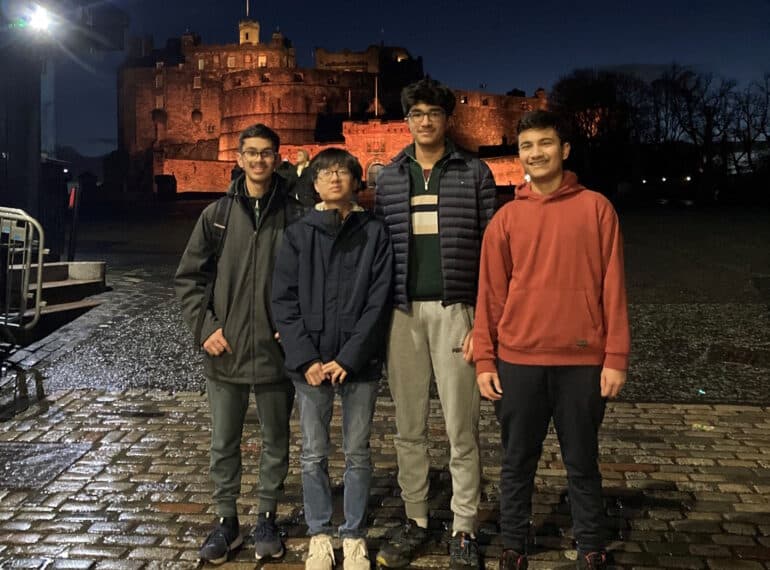
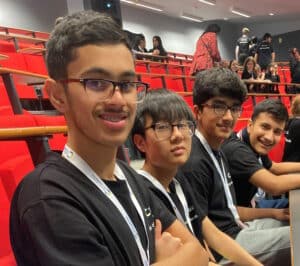 After successfully battling through the regional heats of the long-running Top of the Bench competition, the team took on competitors from around the country at Edinburgh Napier University.
After successfully battling through the regional heats of the long-running Top of the Bench competition, the team took on competitors from around the country at Edinburgh Napier University.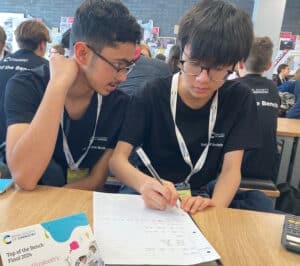 “They were excited to see the beautiful Edinburgh old town,” said Dr Irvine. “They then headed back to the hotel, just off the Royal Mile, after a much-needed Nando’s!”
“They were excited to see the beautiful Edinburgh old town,” said Dr Irvine. “They then headed back to the hotel, just off the Royal Mile, after a much-needed Nando’s!”